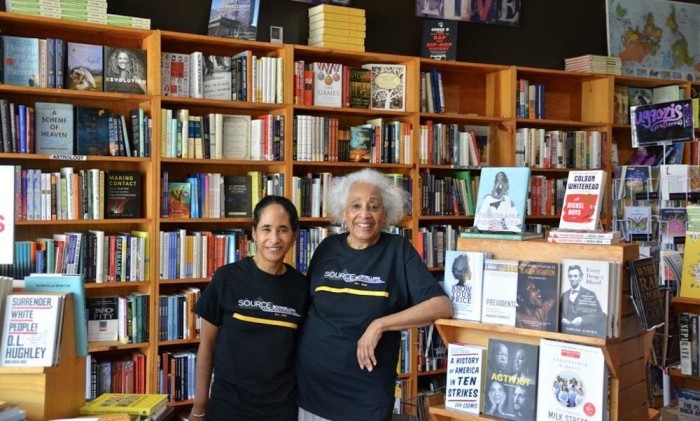Case study | Google: Search Black-owned
Search engine introduces feature to help black-owned businesses by making them more searchable
This article was originally published in Contagious I/O on 2 June 2021
Share this post
In 2020, 41% of US black-owned businesses closed due to the Covid-19 pandemic, which was more than any other racial group in America, according to the National Bureau of Economics. Meanwhile, Google Trends showed that searches for ‘Black-owned’ skyrocketed by 600% – but there was no simple way to find out if a business was black-owned.
To make these businesses easier to search for and support, Google built a feature that enables businesses to identify as black-owned, and made this attribute searchable in Google Search and Maps.
To raise awareness of the new feature, the tech company’s in-house agency Google Brand Studio launched a campaign consisting of nationally broadcast TV spots, print and digital ads featuring real black-owned businesses and their stories. Google also extended the feature to Google Shopping (a service that allows users to search for products online and compare prices from different vendors) and created a ‘shoppable mural’ featuring products from black-owned businesses.

Google also enlisted celebrity influencers such as basketball star Stephen Curry and singer Leon Bridges to promote the feature and highlight their own favourite black-owned businesses.
Results / Since the launch of the Search Black-owned campaign in February 2020, more than 86,000 businesses have identified as black-owned on Google. According to the agency, sales spiked from IG traffic to the businesses promoted by up to 3000%, there was a 300% increase in social conversations around blackness and 523 million campaign impressions.
Contagious Insight
Good value / As one of the world’s biggest tech companies, it’s a good look for Google to support small businesses that have suffered during the pandemic. People use Google to search for and discover places for shopping or eating out, so it makes sense for the brand to use the scope and reach of its platform to put small establishments on the map. And since Covid-19 took a disproportionately hard toll on black-owned businesses, it’s apt that this feature empowers those business owners in particular. But the introduction of a feature that indicates if a business is black-owned is also a value add for users: by identifying a 600% increase in searches for ‘Black-owned’ and responding by creating a search filter to enable users to easily find out if a business was black-owned, Google solved a consumer pain point and made Google Search and Google Maps better, more valuable tools.
Authentic response / As if a global pandemic wasn’t quite enough for people to contend with in 2020, the murder of George Floyd triggered a wave of grief, anger and unrest which was felt across the world. In the US, brands responded in various ways – from Ben & Jerry’s call for legislative responses to address the country’s racist heritage and reform policing in America, to Nike’s split-screen film, You Can’t Stop Us.
As a search engine, this tool to help black-owned businesses recover and survive is a fitting and authentic way for Google to show its support for black communities in the US in a turbulent year. Not only does it address the impact of the pandemic, but it provides a practical way for people to support black communities via black business owners.
Before the pandemic, reports McKinsey, 58% of black-owned businesses were at risk of financial distress, compared with 27% of white-owned businesses. And since black-owned businesses were ‘more likely to already be in a precarious position’ and/or ‘located in communities with business environments that are more likely to produce poor business outcomes’, they were hit the hardest by pandemic-linked economic downturn.
Besides it being a simple and urgent matter of equality to offer black business owners better access to capital, expertise and business services to even the keel, it also makes economic sense for America. ‘Healthy black-owned businesses could be a critical component for closing the United States’ black–white wealth gap, which we project will cost the economy $1trn to $1.5trn (in 2018 dollars) per year by 2028,’ the McKinsey report states.


